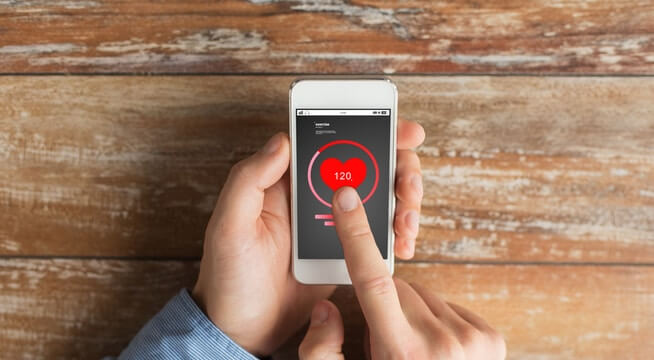
We’ve all experienced the feeling of our heart skipping a beat, and if this happens only occasionally, it’s usually not a cause for concern. However, if your heart is constantly racing, fluttering or beating slowly, you may have an arrhythmia.
What Is Arrhythmia?
An arrhythmia is an unusual heartbeat or heart rhythm that impairs cardiac function and blood flow. The typical human heart beats between 60 and 100 times a minute. Anything faster or slower than that could indicate an underlying heart condition. Sometimes normal conditions like stress, sleep and exercise will temporarily change your heart rate without causing any issues.
Is Arrhythmia Dangerous?
Not all forms of arrhythmia are dangerous. However, sometimes it can halt blood flow through the body, essentially starving your internal organs of oxygen and nutrients. It can make you faint and potentially hurt yourself while falling. Arrhythmia can also be an indicator of heart disease and directly cause a heart attack or stroke.
What Causes Arrhythmia?
Arrhythmia occurs when our heart’s electrical impulses are out of whack. Typically, a heartbeat originates in the sinoatrial node (SA node) in the upper righthand chamber of our heart. The signal tells the atria to contract. The electrical impulse then passes to the atrioventricular node (AV node), which connects the atria (top chambers of the heart) with the ventricles (bottom chambers of the heart). After being slowed, the signal tells the ventricles to contract and deliver blood to the rest of our body.
Any deviation from this chain of events can cause an arrhythmia, including:
- Activity in heart cells that aren’t located in the SA node
- Malfunction of the SA or AV nodes
- Stopping or slowing of electrical impulses
- Being born with extra electrical pathways in the heart
Types of Arrhythmia
The two main types of arrhythmia include:
1. Tachycardia: Fast heartbeat.
2. Bradycardia: Slow heartbeat.
Categories of Arrhythmia
However, there are many other categories of arrhythmia, like:
Atrial fibrillation: Fast, irregular heartbeats starting in the atria that could cause a stroke.
Atrial flutter: Fast, regular heartbeats starting in the atria that may evolve into atrial fibrillation or cause stroke.
Heart block: Slowing or stopping of the electrical signals between the SA node and ventricles, which can result in a Stokes-Adams attack with fainting, convulsions or death.
Long QT syndrome (LQTS): Fast, highly irregular heartbeats caused by congenital heart disease or medication that can cause fainting, convulsions, and death.
Paroxysmal supraventricular tachycardia (PSVT): Blanket term for fast heartbeats, usually 130 to 230 beats per minute, originating in the atria.
Postural orthostatic tachycardia syndrome (POTS): Sudden acceleration in heartbeat caused by standing up, which can lead to fainting.
Premature atrial contractions (PACs): Extra heartbeats in the atria that do not usually cause health problems.
Premature ventricular contractions (PVCs): Extra heartbeats in the ventricles, often caused by caffeine intake, that aren’t usually life-threatening unless combined with other arrhythmias.
Sick sinus syndrome/sinus node dysfunction: SA node malfunction, often due to scarring, causing bradycardia or a mixture of slow and fast heartbeats.
Ventricular fibrillation: Fast and irregular heartbeats starting in the ventricles, sometimes as quick as 300 beats per minute, which can quickly lead to death.
Ventricular tachycardia (V-tach): Fast and regular heartbeats originating in the ventricles that reduce the amount of blood being pumped through the body.
Wolff-Parkinson-White syndrome: Being born with an additional pathway between the atria and ventricles besides the AV node, causing racing heartbeat and discomfort.
Arrhythmia Treatment
Fortunately, doctors can assess and treat many types of arrhythmia. They can track your heart’s electrical impulses with an electrocardiogram (ECG/EKG) or a portable Holter or event monitor that you wear at home. They can also look at the internal shape of the heart with an echocardiogram (echo) using ultrasound equipment.
If an irregularity is identified, they may recommend the following courses of action:
- Reduction of caffeine and nicotine intake
- Taking prescription medication
- Pacemaker implantation
- Cardioversion: Using electrical pads and patches to jolt the heart back into a regular rhythm
- Catheter ablation: Using thin tubes to cauterize specific parts of the heart tissue
- Management of underlying heart disease or high blood pressure
Emergency Arrhythmia Treatment at Complete Care
A sudden change in heartbeat can be alarming, especially if you’ve never experienced it before. Always play it safe when it comes to heart health. If you’re experiencing a racing heart, drop in blood pressure or chest pain, come into the Complete Care emergency room nearest you. We are equipped to handle major medical emergencies, such as irregular heartbeat, heart attack, and stroke-like symptoms, and are open 24/7 to help you.
